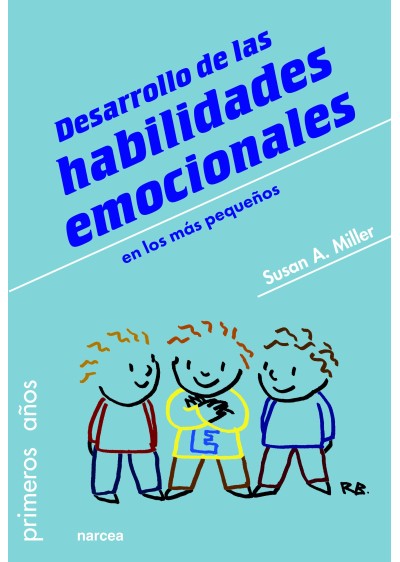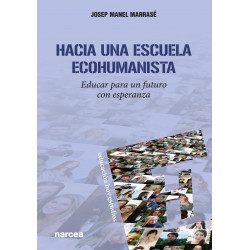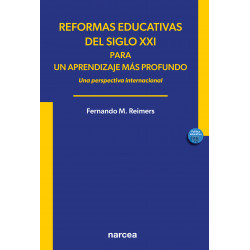Herramientas de accesibilidad
Aprender seguros
Principios y estrategias para construir escuelas que cuidan
La educación de los niños es una de las tareas más valiosas y apasionantes en el mundo actual, un escenario lleno de riqueza y de complejidad que busca ofrecerles el mejor punto de partida: una base segura para crecer. Para desarrollar las competencias educativas clave en las distintas etapas, el niño necesita aprender contenidos y habilidades específicas, pero también necesita poder separarse de sus padres con seguridad, establecer vínculos con nuevos adultos de referencia, entrenar su regulación emocional, relacionarse con iguales, entrenar destrezas básicas con su cuerpo o atreverse a jugar. La seguridad en las relaciones es uno de los cimientos del aprendizaje.
La seguridad afectiva en la escuela se consolida de forma muy particular en la relación del niño con su profesor; pero también la alianza de cuidados entre el profesor y la familia o la capacidad de los equipos directivos de implicar a toda la comunidad educativa en el cuidado, construyendo escuelas que cuidan.
Este libro presenta los principios y estrategias básicas de Aprender Seguros, un programa que busca fortalecer los vínculos en el ámbito educativo (entre profesor y alumno, entre profesor y familia, y en el interior de las escuelas) como estrategia para fomentar el aprendizaje y el desarrollo integral del alumnado. Desde 2017, este programa ha formado y acompañado a claustros de educación infantil, incidiendo sobre los vínculos en estos tres niveles y aplicando los principios de la teoría del apego a la escuela. Su objetivo final es promover y consolidar culturas sensibles al apego en el seno de las escuelas.
El libro es el resultado de la experiencia, con numerosos docentes y sus equipos educativos. Sus valiosas aportaciones han enriquecido la reflexión de los autores y ha permitido comprobar la utilidad y la novedad de este enfoque del cuidado en el trabajo cotidiano.

- ISBN
- 9788427728257
- Páginas
- 192
- Edición
- 1ª edición
- Fecha de edición
- 2021
- Alto
- 24,00 cm
- Ancho
- 17,00 cm
I. PROMOVER LA SEGURIDAD EN EL AULA
1. La importancia del vínculo en el contexto escolar. La seguridad en las relaciones, clave del éxito escolar
2. Comprender la inseguridad en el alumno
3. La seguridad del alumno en los momentos difíciles
II. PROMOVER SEGURIDAD EN LA RELACIÓN EDUCADORES-FAMILIAS
4. Claves para construir una Alianza de Cuidados
5. Cómo construir la seguridad con las familias en distintos escenarios
III. PROMOVER SEGURIDAD EN LOS EQUIPOS EDUCATIVOS
6. Cadenas de seguridad. Un modelo de transmisión de los cuidados
7. Escenarios del cuidado institucional: las aulas, los claustros, las familias
8. Un modelo para reflexionar en equipo en situaciones difíciles
9. Escuelas que cuidan y enseñan a cuidar. Niños, familias y educadores que cuidan unos de otros
Learning in an environment that conveys confidence and trust
Principles and strategies for building schools that care
The education of children is one of the most valuable and exciting tasks in today’s world. It is an enriching and complex scenario that wants to offer children the best starting point: a reliable base to grow. In order to develop the key educational competencies in the different stages, the child must learn specific contents and skills, but he must also be able to part from their parents with confidence and trust, to establish bonds with new adults of reference, to train his emotional regulation, to interact with his peers, to train basic skills with his body and to dare to play. Trust in relationships is one of the foundations of learning.
Affective trust at school is consolidated in a very particular way in the child’s relationship with his teacher; but it is also essential that there is an alliance of caring between the teacher and the family, and that the management team is capable of helping the entire educational community to take part in the care of the child, building schools that care.
This book presents the basic principles and strategies of Learning in an environment that conveys confidence. This is a program that aims to strengthen links in the educational field (between teacher and student, between teacher and family, and in the school) as a strategy to promote learning and the comprehensive development of students. Since 2017, this program has trained and accompanied early childhood education teachers, focusing on the links at these three levels and putting into practice the principles of the theory of attachment to school. Its ultimate purpose is to promote and consolidate attachment-sensitive cultures at schools.
This book is the result of experience with numerous teachers and their educational teams. His valuable contributions have enriched the reflection of the authors and have made it possible to check the usefulness and novelty of this care approach in daily work.
Ana Berástegui, Amaia Halty and Carlos Pitillas, authors of this book, are members of the First Alliance Project, which is developed at the University Institute of the Family at Pontificia Comillas University. Since 2012, this team has been committed to strengthening the attachment relationships of boys and girls, disseminating the key to the bond at all levels of psychosocial and educational intervention, including the school.
I. PROMOTING TRUST IN THE CLASSROOM
1. The importance of the bond in the school context. Reliable relationships, key to school success
2. Understanding the student self-consciousness
3. Student trust in difficult times
II. PROMOTING TRUST IN THE TEACHER-FAMILY RELATIONSHIP
4. Keys to building a Caring Alliance
5. How to build trust with families in different settings
III. PROMOTING TRUST IN EDUCATIONAL TEAMS
6. Trust chains. A model to transmitting care
7. Institutional care scenarios: classrooms, teachers, families
8. A model to reflect as a team in difficult situations
9. Schools that care and teach care. Children, families and educators who care for each other.
Ana Berástegui, Amaia Halty y Carlos Pitillas
Ana Berástegui, Amaia Halty y Carlos Pitillas, autores de este libro, forman parte del Proyecto Primera Alianza, que se desarrolla en Instituto Universitario de la Familia en la Universidad P. Comillas. Este equipo está comprometido desde 2012 en fortalecer las relaciones de apego de los niños y niñas, difundiendo la clave del vínculo en todos los niveles de la intervención psicosocial y educativa, incluida la escuela.










